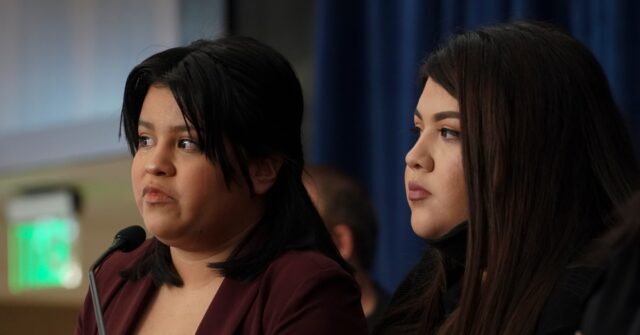Mayra Guillén, the younger sister of Vanessa Guillén, a U.S. Army soldier who was tragically murdered in 2020, publicly condemned The Atlantic for publishing an article prior to the presidential election that she described as a derogatory and misleading portrayal of her sister and former President Donald Trump. In her remarks on Fox News’ Ingram Angle, Mayra referred to the piece as a “lie from the very beginning,” expressing her deep hurt and anger over the article’s content, which alleged that Trump disrespected Vanessa by saying disparaging comments about her and refusing to pay for her funeral. Mayra deemed the article’s timing and claims particularly upsetting, as they resurfaced painful memories for her family after a tumultuous four years since her sister’s death.
In her interview, Mayra asserted that the article misrepresented its intentions; she claimed that the reporter, Jeffrey Goldberg, initially indicated that the story would focus on the four-year anniversary of Vanessa’s tragic death and the reforms that emerged within the military regarding sexual assault. Vanessa had reported experiencing sexual harassment prior to her murder at the hands of a fellow soldier, and her case had sparked discussions about better protections for military personnel against such issues. However, Mayra felt that Goldberg’s true aim was to create a sensational narrative around Trump rather than honor Vanessa’s legacy and the legislative changes that followed her death.
Both Mayra and her family lawyer, Natalie Khawam, expressed their frustration at being misled during their communications with Goldberg. Mayra revealed that when she first spoke with the journalist, she was under the impression that he would focus on the positive developments related to Vanessa’s story, including legislative achievements that aimed to protect other service members. Instead, the article took a damaging turn, involving personal attacks on Trump and allegations about his interactions with the Guillén family that Mayra vehemently denied. This breach of trust left her feeling as though her sister’s reputation had been tarnished for the sake of sensational journalism.
After the article’s release, Mayra took to social media platform X to express her disbelief and anger, stating that Trump and his family had been respectful toward her family during their time of grief. In a significant moment, she disclosed that she had voted for Trump, a detail she had not initially planned to share. The dynamics of the political landscape and the usage of her sister’s name for electoral purposes led her to clarify her stance publicly, defending both her sister’s memory and her political beliefs. She emphasized that her family had worked across party lines to honor Vanessa and support policies that would benefit military personnel, but she felt compelled to vocalize her views in light of the article’s implications.
Mayra also articulated her disappointment in the way her sister’s case was being manipulated for political gain, asserting that her family’s experiences and struggles should not be weaponized in the context of an election. The notion that Vanessa’s name could be co-opted in such a manner sparked a resolve in Mayra to stand up for her sister and correct the narrative. She encouraged a narrative of respect and honor, seeking to reclaim Vanessa’s story from the political arena in which it had been placed against her family’s wishes.
The ethical considerations surrounding journalistic integrity, especially in sensitive topics such as familial loss and political discourse, were at the forefront of Mayra’s critique of The Atlantic’s article. She called attention to the broader implications of how stories are framed and manipulated by the media, particularly during a politically fraught time. Ultimately, Mayra indicated her intent to ensure that Vanessa’s legacy was honored appropriately, advocating for truthful representation that aligns with the values her sister stood for. As she navigated the aftermath of the article’s disappointing publication, Mayra reaffirmed her commitment to fight for the memory of her sister and for military reforms that would protect future generations of service members.

